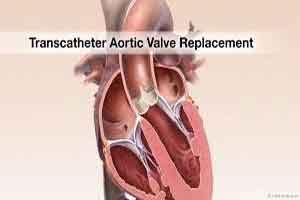- Home
- Editorial
- News
- Practice Guidelines
- Anesthesiology Guidelines
- Cancer Guidelines
- Cardiac Sciences Guidelines
- Critical Care Guidelines
- Dentistry Guidelines
- Dermatology Guidelines
- Diabetes and Endo Guidelines
- Diagnostics Guidelines
- ENT Guidelines
- Featured Practice Guidelines
- Gastroenterology Guidelines
- Geriatrics Guidelines
- Medicine Guidelines
- Nephrology Guidelines
- Neurosciences Guidelines
- Obs and Gynae Guidelines
- Ophthalmology Guidelines
- Orthopaedics Guidelines
- Paediatrics Guidelines
- Psychiatry Guidelines
- Pulmonology Guidelines
- Radiology Guidelines
- Surgery Guidelines
- Urology Guidelines
RAS inhibition after TAVR may improve clinical outcomes: JACC

Renin-angiotensin system (RAS) inhibitor after a transcatheter aortic valve replacement (TAVR) may improve clinical outcomes, revealed a study published in the Journal of American College of Cardiology (JACC).
Use of transcatheter aortic valve replacement (TAVR) for severe aortic stenosis has gained popularity worldwide. The adverse remodeling associated with TAVR has been linked with poorer outcomes, but the impact of medical therapy is not clear.
Inhibitors of the renin-angiotensin system (RAS), particularly the angiotensin-converting enzyme (ACE) inhibitors and angiotensin II receptor blockers (ARBs), are commonly used in the treatment of hypertension or high blood pressure. The present study attempts to explore the potential benefits of the renin-angiotensin system (RAS) inhibitors on left ventricular remodeling and major clinical outcomes following successful transcatheter aortic valve replacement (TAVR).
Patients from 10 institutions with severe aortic stenosis who underwent TAVR between August 2007 and August 2017 were included. All baseline data were prospectively recorded, and pre-specified follow-up was performed. Doses and types of RAS inhibitors at discharge were recorded, and matched comparison according to their prescription at discharge was performed.
- A total of 2,785 patients were included in the study.
- A total of 1,622 patients treated with RAS inhibitor presented similar surgical risk scores but a higher rate of all cardiovascular risk factors, coronary disease, and myocardial infarction.
- After adjustment for these baseline differences, reduction of left ventricular volumes and hypertrophy was greater and cardiovascular mortality at 3-year follow-up was lower in patients treated with RAS inhibitors.
- Moreover, RAS inhibitors demonstrated a global cardiovascular protective effect with significantly lower rates of new-onset atrial fibrillation, cerebrovascular events, and readmissions.
"Post-TAVR RAS inhibitors are associated with lower cardiac mortality at 3-year follow-up and offer a global cardiovascular protective effect that might be partially explained by a positive left ventricular remodeling. An ongoing randomized trial will help confirm these hypothesis-generating findings. (Renin-Angiotensin System Blockade Benefits in Clinical Evolution and Ventricular Remodeling After Transcatheter Aortic Valve Implantation [RASTAVI]" concluded the authors.
For reference, click on the link
https://doi.org/10.1016/j.jacc.2019.05.055

Disclaimer: This site is primarily intended for healthcare professionals. Any content/information on this website does not replace the advice of medical and/or health professionals and should not be construed as medical/diagnostic advice/endorsement or prescription. Use of this site is subject to our terms of use, privacy policy, advertisement policy. © 2020 Minerva Medical Treatment Pvt Ltd